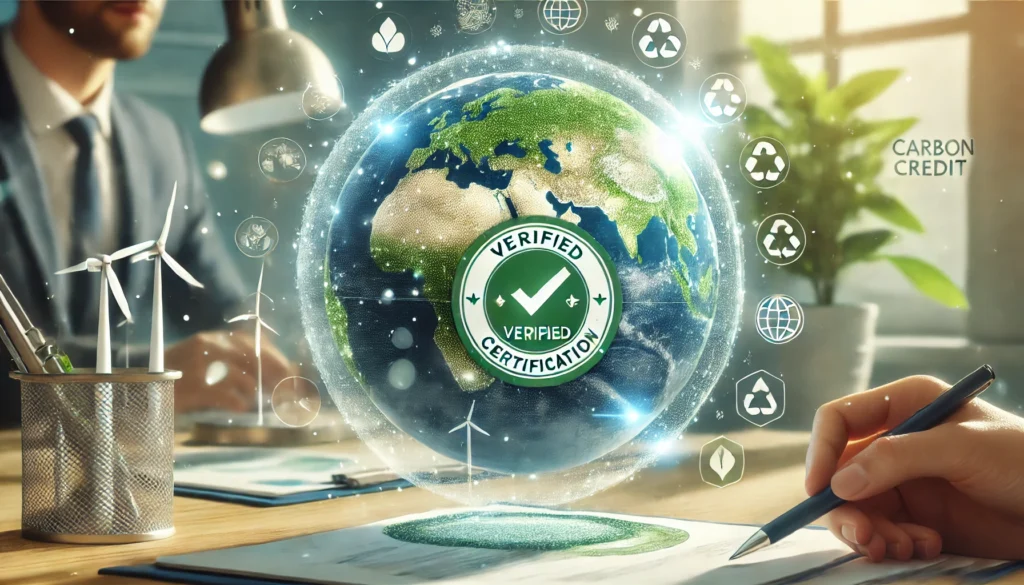In recent years, the interest in carbon credits among companies has surged. Beyond being a way to offset emissions, purchasing carbon credits has become a valuable strategy for enhancing reputation and opening doors to new business opportunities. For organizations, investing in carbon credits not only contributes to global sustainability but also generates economic and brand value. In this comprehensive guide, we’ll explore the advantages of carbon credits for companies, with a special focus on the economic and reputational benefits that this practice can provide.
In-Depth Research and Analysis: Research shows that carbon credits are an effective way to offset greenhouse gas emissions, which are crucial for reducing environmental impact. Created under the Kyoto Protocol and expanded by the Paris Agreement, carbon credits represent the reduction of one ton of CO₂ and are used to offset unavoidable emissions by companies across various sectors. For organizations, they are more than an environmental tool—they add economic and brand value, becoming increasingly demanded by consumers and shareholders concerned with environmental impact.
Economic Benefits of Carbon Credits:
- Tax Advantages and Incentives: In many countries, companies that purchase carbon credits and maintain sustainable initiatives gain access to tax incentives, subsidies, and favorable credit lines.
- Access to New Markets: Businesses committed to sustainability gain preference in public procurement processes and bidding for large companies, especially in European and North American markets.
- Improvement in Company Valuation: For investors, using carbon credits signals an organization’s commitment to sustainability and corporate responsibility, potentially increasing valuation and attracting investment.
- Reduction in Operational Costs: As companies seek to reduce emissions, they often end up optimizing processes, identifying cost-effective alternatives to reduce energy and material consumption.
Reputational Benefits:
- Enhancement of Corporate Image: Companies using carbon credits project an image of responsibility and innovation, attracting consumers who prioritize sustainable brands.
- Customer Loyalty: Studies show that consumers prefer buying from companies aligned with their values, especially regarding sustainability. Adopting carbon credits can strengthen this relationship.
- Market Differentiation: Having a unique carbon offset strategy offers a competitive advantage and helps companies stand out from the competition.
- Attraction and Retention of Talent: Employees, especially younger generations, prefer working in environmentally responsible companies, which can directly impact talent retention and internal image.
Legislation and Relevant Regulations: The purchase of carbon credits is subject to specific regulations, and understanding local and international legislation is essential to avoid conflicts and maximize benefits. For instance, in Brazil, there are tax incentives for companies adopting sustainable practices, and in certain regions, there may be specific subsidies. The European Union also imposes strict regulations, especially for high-impact sectors like industry and energy.
Key Challenges and Considerations:
- Quality Verification of Credits: Not all carbon credits are the same. Companies should seek credits certified by recognized entities like the Gold Standard or VCS to ensure authenticity and environmental impact.
- Implementation and Maintenance Costs: Implementing a net-zero strategy can be costly, especially initially. However, economic and brand returns tend to offset costs in the long run.
- Need for Transparency: Companies need to communicate their sustainability actions clearly. Transparency is crucial to avoid greenwashing and build public trust.
Comparison and Guides for Purchasing Carbon Credits: For companies looking to invest in carbon credits, understanding the different options available in the market is essential:
- Offsetting versus Reduction: Some companies choose to offset their emissions, while others work directly to reduce them. The ideal strategies combine both aspects.
- Voluntary Market versus Regulated Market: Companies can choose between voluntary and regulated carbon credits, depending on their goals and the need for compliance with local laws.
- Types of Projects: Reforestation, renewable energy, and carbon capture projects are the most common. Choosing the right type depends on the company’s goals and values.
The acquisition of carbon credits is a powerful tool for companies aiming to reduce their environmental impact and enhance their reputation and competitiveness. In addition to strengthening corporate image, this practice brings tangible economic benefits and opens doors to new market opportunities. As we’ve seen, investing in carbon credits can be both a responsibility strategy and a way to add long-term business value.


